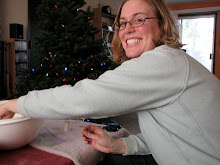There have been a few different articles floating around FB lately about what to say or not to say during stressful or traumatic times in the lives of the ones we care about. I have thought about writing about this so many times that I have lost count. I have decided to share my experience with this as well. I'm not an expert by any means, and I'm still surprised when I don't know what to say to someone sometimes. But you know what? It is ok, to not know what to say. And is even ok to say that you don't know what to say. Your loved one is not going to expect you to know, but on some level, they do expect you to NOT say certain things. Which isn't really fair ~ so this is what I learned from my own experience.
The first thing to understand, is even though you may have the BEST intentions ~ during times of high stress/trauma/shock/grief/etc ~ your words may not be taken lightly or even kindly for that matter by the recipient. There are times when the things we can say, even though the meaning behind them is to be supportive, encouraging or kind ~ seems down right rude and inconsiderate and even hurtful to the ones who are going through it. During certain times, the "rules of engagement" changes.
Even when I knew on some level, that there were words of wisdom, or truth in what a person was saying to me, I absolutely did not want to hear it! There was still a whole other part of me that was trying to make sense of everything that was going on. People need time to digest and to process. You know the Seven Stage of Grief? The first stage is denial. Shock is more like it. It's like a part of your own psyche is talking to itself, on one hand, saying, I know that said thing happened, and on the other hand, questioning that said thing really happened and then being confused about it all. Have you ever seen someone get out of their car after a car accident? And you can tell by the way that they're behaving that they're in shock. It really is the same difference even if there wasn't a physical trauma that happened to a person's body. It's the same when dealing with grief.
So, my recommended "rules of engagement" are as follows:
What Not to Say:
Numero Uno ~ Number One ~ The Big Kahuna ~
"Everything Happens for a Reason" ~ This was the very last thing that I wanted to hear. The accident happened a week before our wedding, we were good people, we wanted to start our family and create businesses where we were helping others and yet, all of a sudden, the DA was after Doug like he was Charles Manson, and Doug was looking at 10 years in prison with no parole. So, no, I didn't want to hear that everything happens for a reason. Would you say that to a child who's dog just got hit by a car? Would you say that to a woman who's been raped? Would you say that to a parent who's child died? No. Even if you truly believe these words, in times like these, hold them back. The person who is going thru their worst nightmare, is not going to be comforted by them. They will be hurt and angered by them.
Number Two ~
Let Me Know What I Can Do For You or How Can I Help? ~ Ugh. is. all. I. have. to. say. This was my top two pet peeve of what people would say (or ask) me. I was barely making it through my days, I could barely function, my main focus was on Doug and being there for him as a partner, adjusting to our immediately changed relationship during this time, and somehow figuring out how to take care of myself in the process, all while my world has been completely torn apart, and I'm still trying to catch my breath from getting the wind knocked out of me. Please do not expect the person you care about to know how to answer this. They most likely feel terribly alone, hopeless, confused, and overwhelmed would be an understatement. Even if they had an idea ~ they wouldn't even know where to begin. Another thing to remember, and maybe this is just me, but I was exhausted. Trauma immediately sets into our bodies (from a bodyworker perspective ~ every cell in our body has memory. Our bodies work really hard to create a new balance anytime there is any kind of trauma, whether it is emotional, psychological, or physical, or even spiritual. So, in a way, your loved one's body is working very, very hard). So to mentally answer questions and come up with resolutions to problems ~ is the last thing on their mind. I remember just wanting people to help me. I needed people to step in and just do something. I already felt I had an enormous situation to deal with and would get very irritated that people expected me to tell them what to do. I wanted to be taken care of, I did NOT want to take care of other people.
One thing to remember ~ emotions are heightened for all during this time. Your loved one is experiencing a new way of life and you are on the sidelines, probably feeling incredibly helpless, you don't know what to do for them, and you just want them to feel better. So, I can look back now, and see that people were trying to comfort me, they were doing their best, as was I.... BUT, at the same time, things that people said, just seemed horrible and so inconsiderate, thoughtless and rude. So, sometimes, the best thing to do is NOT to say anything at all.
What to Say and What to Do~
The Big Kahuna ~
L - I - S - T - E - N
All in all, your loved one, just wants to be heard. They aren't expecting you to fix or change things (that is our own need, not theirs), they just need to talk it out. It can help them process things, to feel like they have support and that they aren't alone. (Mom and Dad, you rocked at this by the way, thank you!)
But listening on a deeper level, means listening to more than just what the person is verbally speaking. You know, my big no-no, number two above, asking how you could help? This is the secret.... They will tell you. They might not even realize it, but they most likely will inadvertantly tell you. I remember my thing was food. During times of stress, I can have issues with hypoglycemia, my stomach hurts, I don't have an appetite and yet I know I need to eat to keep up my strength and not to pass out from low blood sugar. I also don't have any energy. I am an emotional eater, so what tends to happen, is I get so hungry from not eating due to no appetite, and then the ONLY thing that sounds good is sugar. So then I end up eating crap and feeling like crap and it is a constant cycle of well, feeling crappy. Anyway, I can't tell you how many times I was talking to someone who asked me what they could do (and sometimes I did directly say, I'd love a casserole and to no avail) and other times, I just remember explaining how I didn't want to eat, maybe I didn't have a lot of money, I didn't have an appetite, maybe I didn't want to cook so I'd get takeout (which happened A LOT) ~ which was my way of trying to nurture myself, having someone else cook for me even if it was take out and not from a loved one. And let me tell you, food is so healing if prepared and given in just the right way. Your loved one will receive more nourishment and love from a plate of hot food, more than you could possibly imagine. It doesn't have to be fancy. You can even drop off a small plate of what you were already making for dinner. (Thanks June, I loved it when you'd stop by with a warm plate of food and enough for leftovers!)
Long story, short. Don't ask. Just listen. They will tell you.
Number Two ~
The Golden Rule Baby ~
Yes, the golden rule. Treat others how you want others to treat you. Just think of when you are down, sad or going through a rough time. What helps to cheer you up? Flowers? Chocolate? Baked Goods? A card in the mail? An e-card? A phone call? DO THAT. Most likely, your loved one will too. It definitely goes without saying, it is the thought that counts. I can tell you from personal experience, the cards, e-cards, emails and definitely phone calls, meant more to me than anyone could possibly know. (Becky, Angie, Wendi, Liz, JJ and Lori and Aunt Namaste to name a few, thanks! And everyone who read my CaringBridge journal, I hung onto your words every day, you have no idea.) Heck, if you have animals and your loved one loves them, but they don't have any, bring your dog over, have them hang out with your horse. Don't underestimate the healing powers of animals! (Thanks Carrol for letting me help you out with Solomon, I loved it!)
And last, but not least, if you forget everything else I've said, remember this and only this. Your loved one just wants to be loved. They want to know you love them, you are there for them, you care about them and that they matter. And in my case, also that I wasn't being judged. It is bitter sweet, but in times like these, is when we learn who our real friends are. It can be very painful, but it helps us to cherish the ones who see us through the thick and thin.
So:
Tell them you are there for them. (Mean this ~ if you aren't going to be able to follow through, don't say it).
Hug them.
Hold their hand.
Tell them you care about them.
Tell them they matter to you.
Sit in silence with them. ~ This says more than you think.
Listen to them.
Just be in the moment with them.
And most importantly, tell them that you LOVE them.








Thanks for sharing Toni, good things to remember! :) and... I love you! XOXO Jodi
ReplyDeleteThanks Jodi! I love you too :)
ReplyDelete